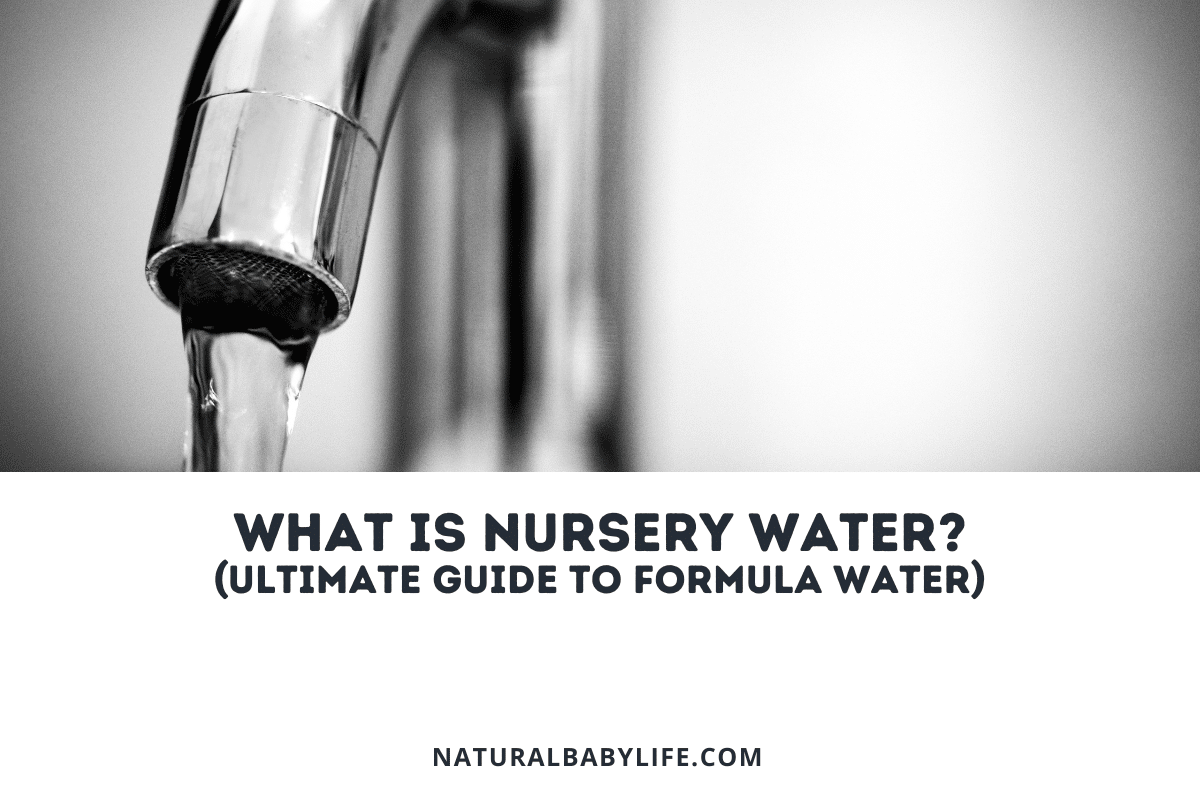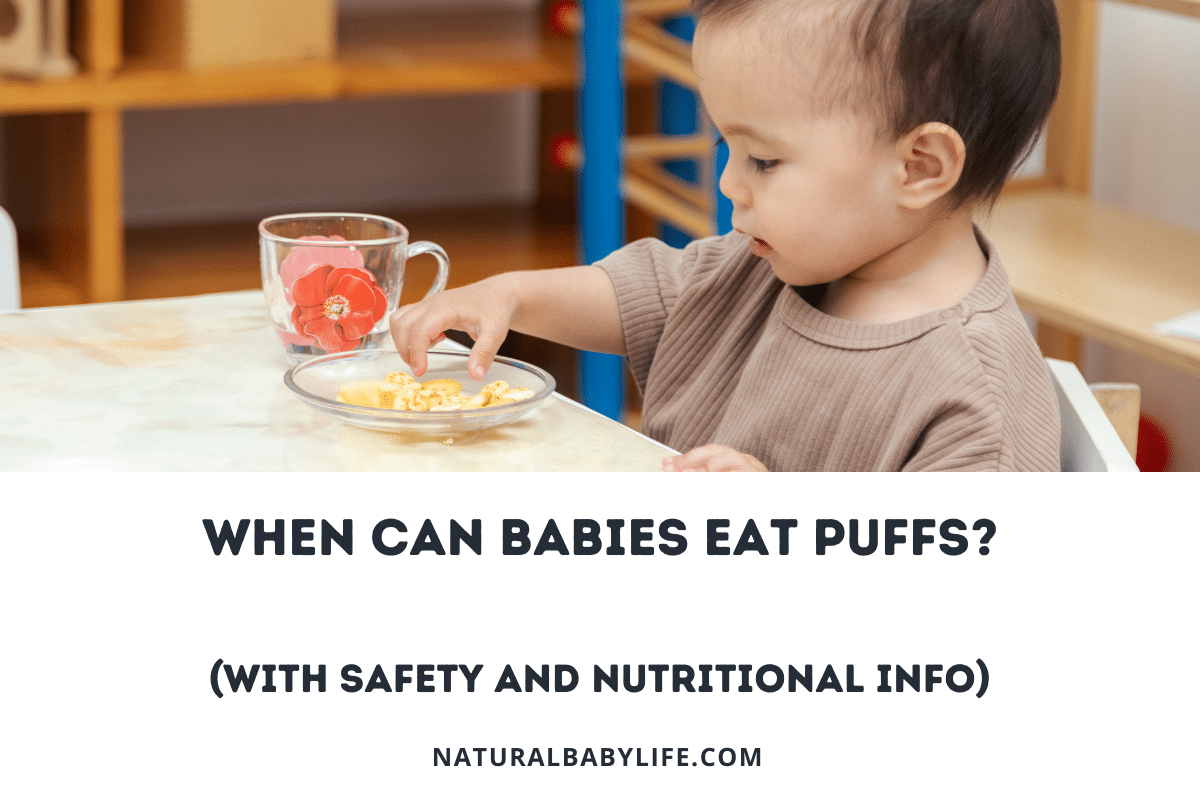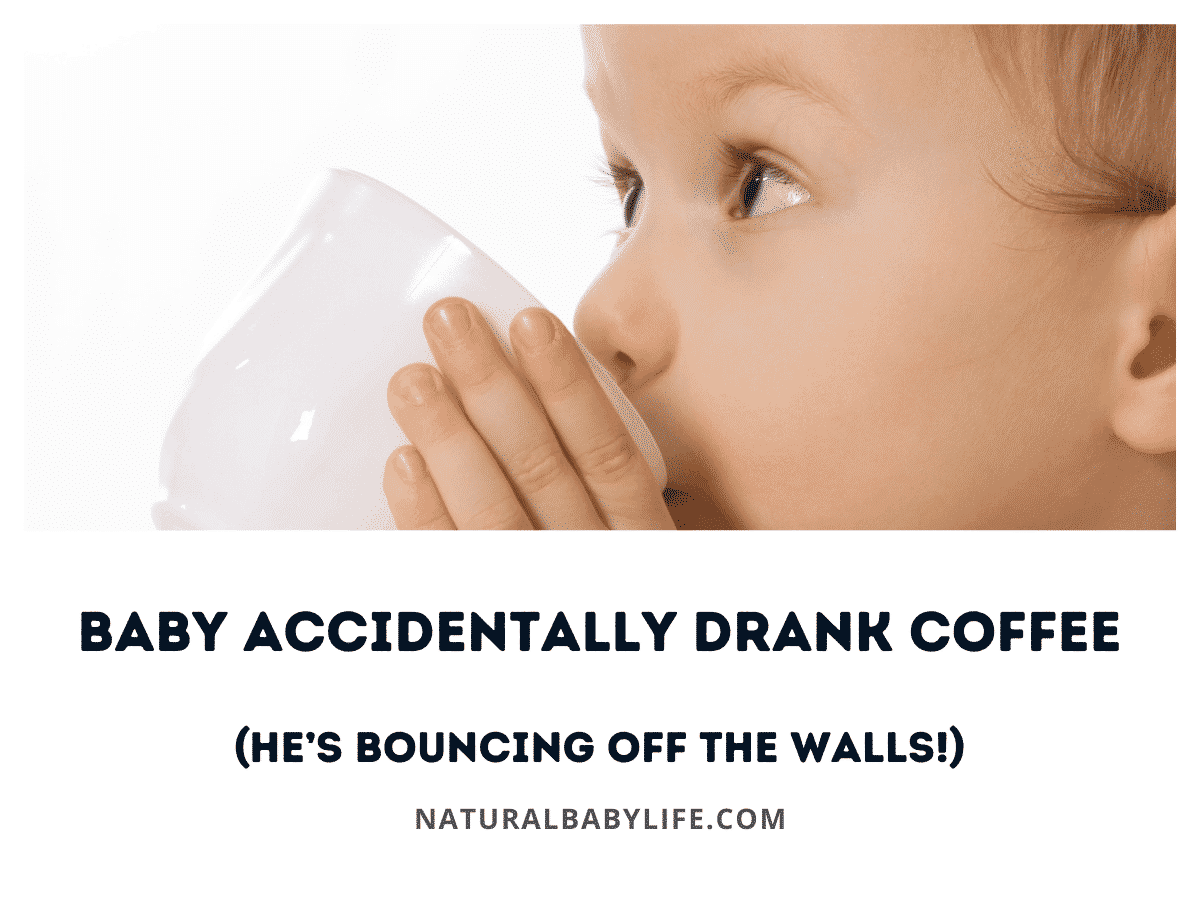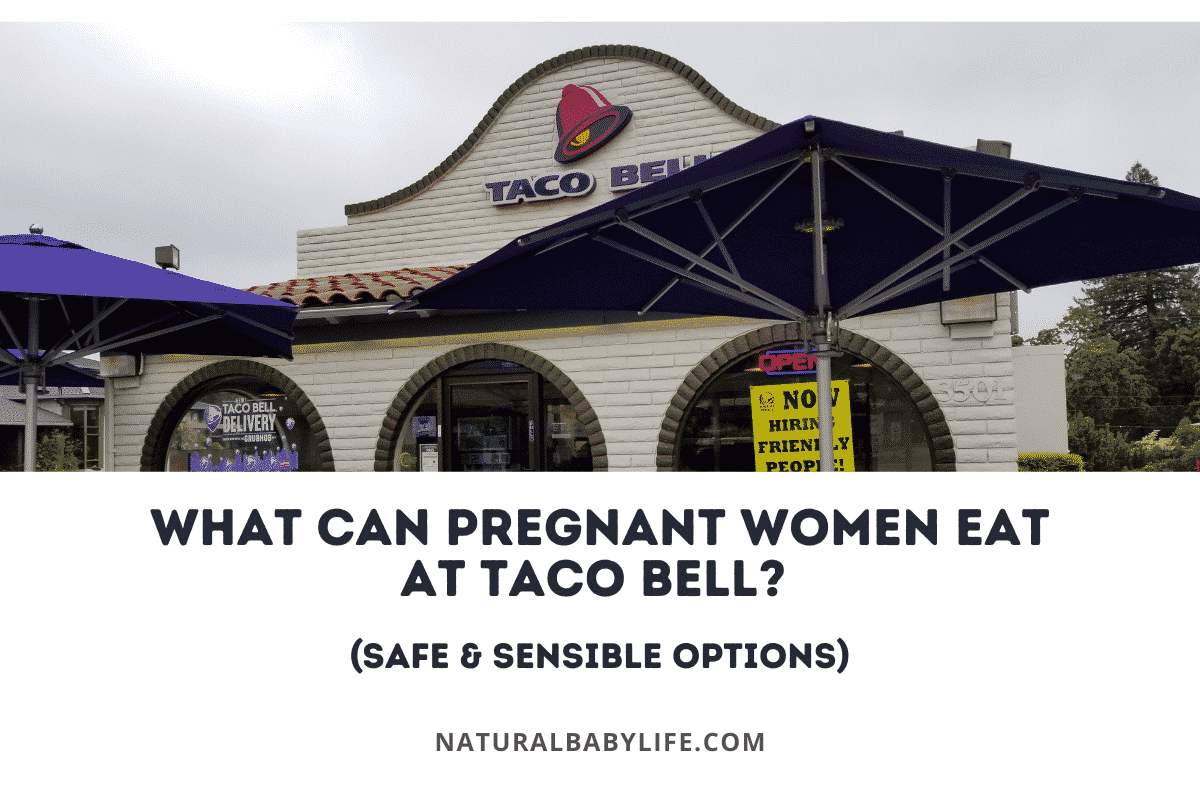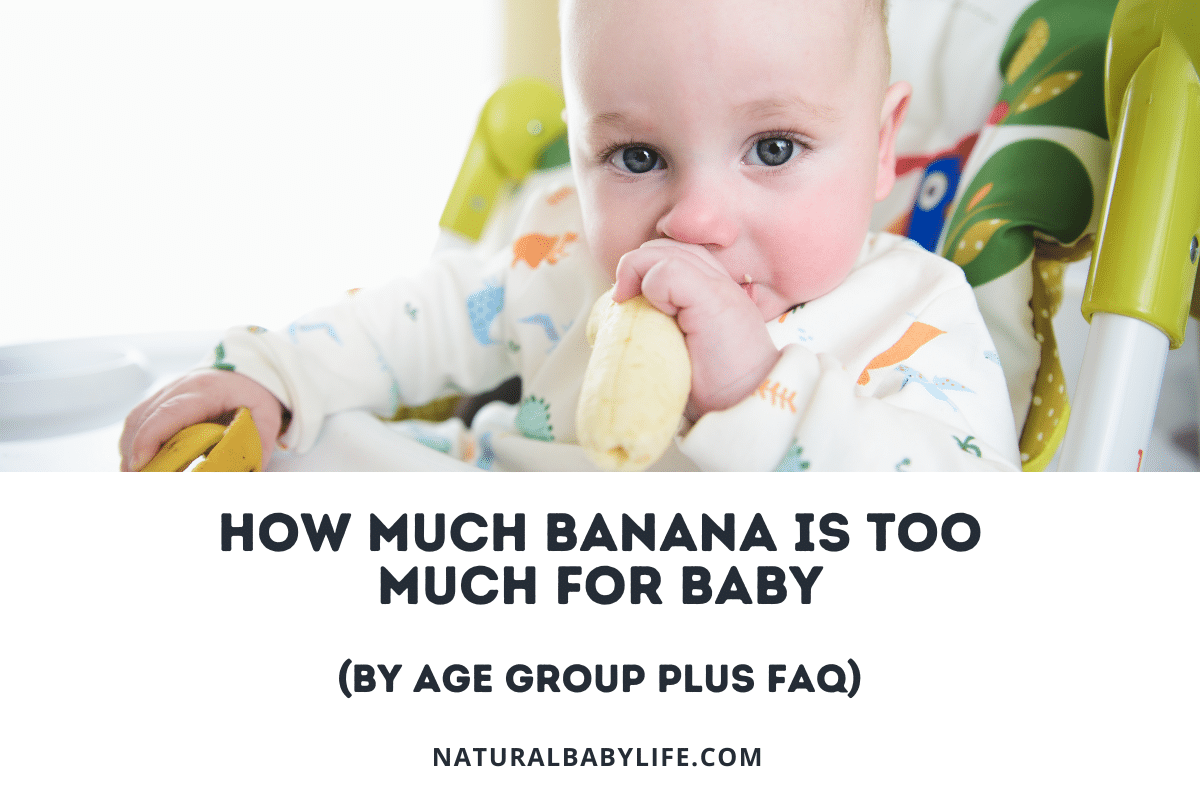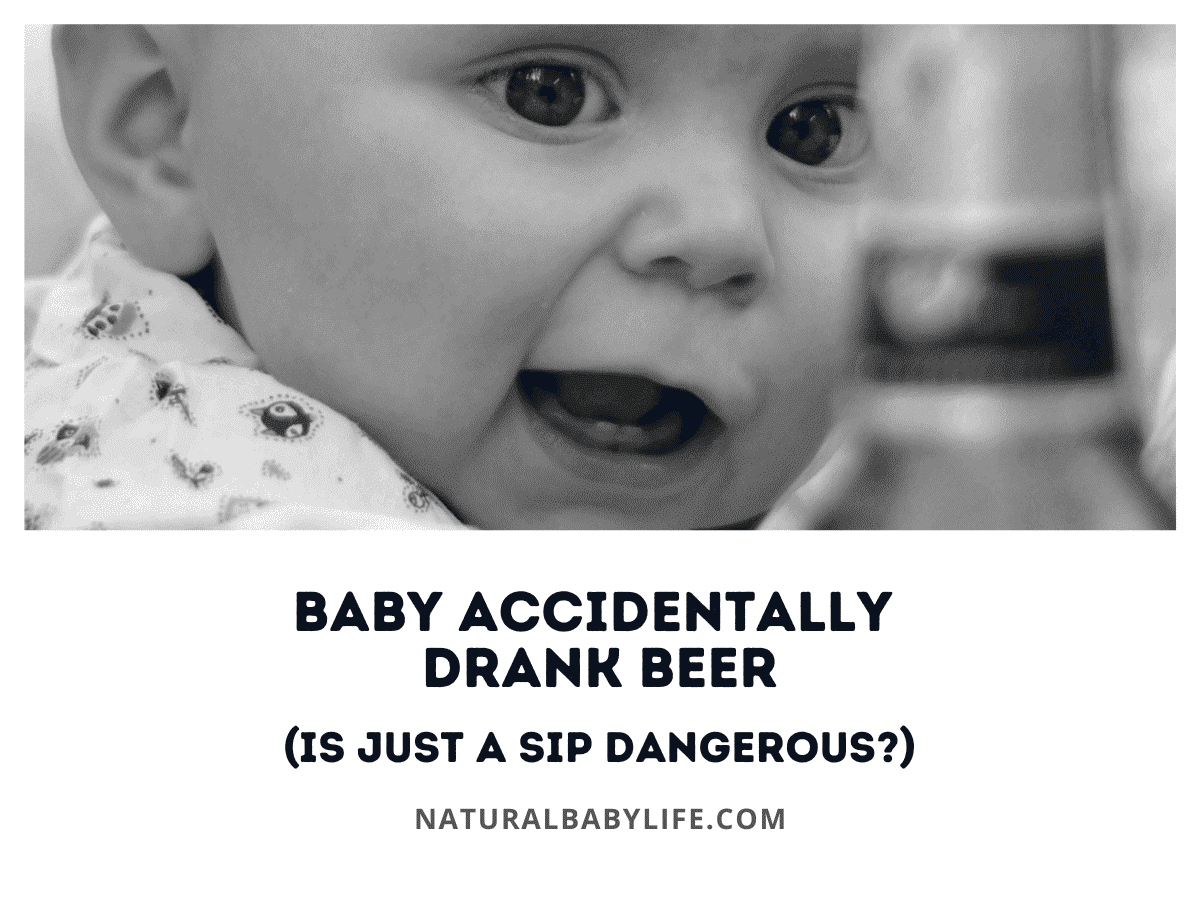You’ll probably see jugs of water anywhere you see formula sold, but just what is nursery water? Is it really worth the effort of buying this water specifically for your baby?
Most types of water that have been purified, distilled, or filtered are safe enough to serve your baby under a year old, including tap water. Specialized baby or nursery water may have extra fluoride added but is otherwise likely no different than regular water.
Read on to learn more details about nursery water, and which alternatives are okay to use if you ever run out.
Table of Contents
What is nursery water
A couple of terms get thrown around when it comes to water made specifically for infants. “Nursery water” is a brand of purified, distilled water.
“Baby water,” on the other hand, is the generic term used for purified water marketed to caregivers of babies. These special types of water are filtered with babies’ health needs in mind.
The process of manufacturing baby water begins with filtering the water to separate out any contaminants. Then, steam purification is performed to make the water safe for infants and toddlers by killing any bacteria that might be left. In some waters, minerals like magnesium, potassium, fluoride, and calcium are added.
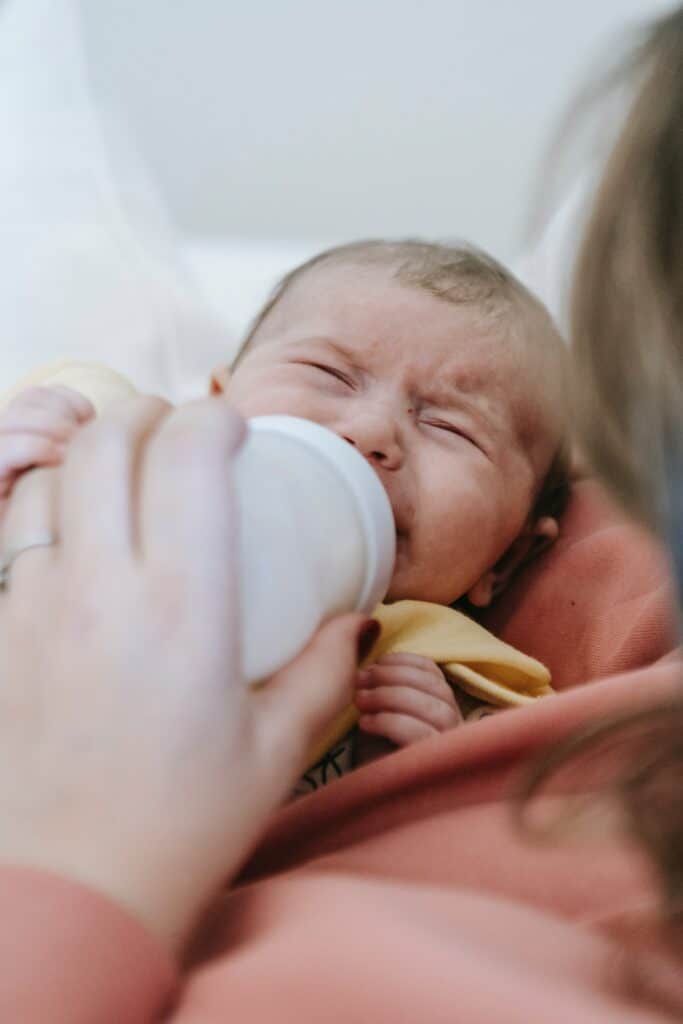
Baby water comes in one primary form – distilled baby water. It is steam-distilled to remove impurities.
Does baby water have fluoride
More rarely, you might find baby water with added Fluoride. It is also steam-distilled but contains added fluoride.
Fluoride is a natural mineral that can help prevent cavities by strengthening your teeth’s enamel. It’s so effective that many communities add fluoride to the drinking water.
The reason that it’s not typically added to baby water is that many infant formulas are already fortified with fluoride. So, your child may already be getting enough fluoride.
You can absolutely make infant formula with fluoridated water, but it can leave white marks on your child’s baby and permanent teeth. This is called fluorosis and is entirely cosmetic.
Not sure whether your local water has added fluoride? You can check the CDC’s website to learn whether your provider adds the mineral.
Distilled water vs. baby water
These two types of water are very similar. Nursery water or baby water is distilled to purify it, especially for babies. However, not all distilled water is considered baby water.
Essentially, the term nursery or baby water is a bit of a gimmick and really just means that you are buying standard purified (and likely distilled) water with some trace minerals for flavor.
Do I need nursery water
This brand claims to produce water that is safe for babies and helps promote their overall health. However, these waters are very similar to regular distilled water. If you run out of this water or find baby water out of your weekly budget, it should be okay to use another type of purified or filtered water for your child’s formula.
What kind of water is best for baby formula
Pretty much, you can use any type of clean water for baby formula. The main thing to keep in mind when choosing water for mixing baby formula is to look into the added minerals or nutrients.
You’ll want to discuss with your doctor about what nutrients may be helpful or detrimental to your baby’s health. If you are using well water, make sure to regularly check the quality of your water to avoid any bacteria.
Of course, if you doubt the safety of your water or pipes, you’ll want to avoid tap water.
Here is some more information about the specific types of water you can safely use for your baby’s formula:
Nursery water
Nursery water, or baby water, has been steam-distilled to remove impurities. Many pediatricians recommend this type of water to use in your baby’s formula. However, many other types of water will have the same quality and are just as safe to feed your baby.
Bottled water
Because bottled waters have gone through some form of a purification process, they are usually okay to give your baby. Look for bottled water that is low in fluoride and marked as purified, deionized, distilled, or prepared by reverse osmosis.
Bottles sold in the United States will meet the FDA’s standards of water quality and are usually okay to use as a replacement for baby water.
According to their approval process, any water sold in bottles should come from protected water sources and have proper quality control and testing in place to ensure that there are no contaminants or bacteria inside the water during production.
However, you might just be spending money and making waste. In the United States, plain old tap water can be sold as bottled water.
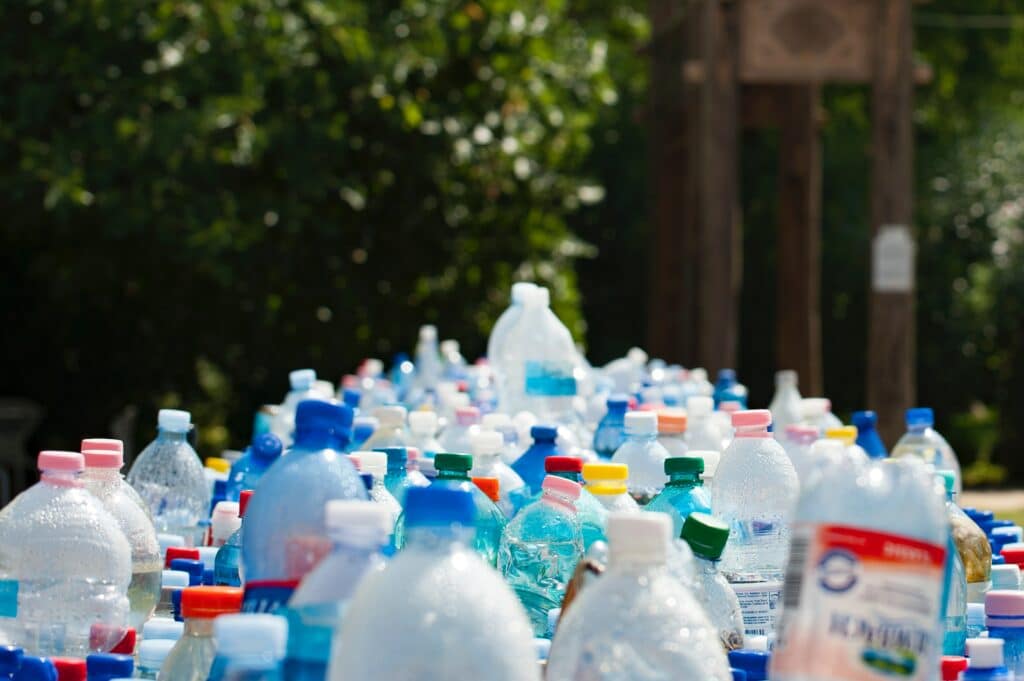
The best bottled water to use for formula
There isn’t necessarily a “best” bottled water to use for formula. Because each brand will have gone through the FDA’s strict standards and regulations, each will be a good option to give your child.
Is spring water okay for formula
Spring water has a similar spectrum of nutrients and minerals as your tap water, so it is usually okay to feed your baby. The main difference between it and tap water is that some have chlorine filtered out.
“100% pure” spring water means that it is pulled from a single source and a deeper reservoir, rather than surface waters. Even though this kind of water is often labeled as pure, natural spring water, it still has to go through a filtration process to meet FDA standards.
With that being said, you likely do not need to boil spring water.
Do I need to boil bottled water for baby formula
In the past, it was recommended that all water should be boiled before adding it to infant formula. However, this step is not used as often as it used to because of our access to advanced purification techniques. Many baby formulas will instruct you to consult your baby’s doctor before deciding whether or not to boil water before mixing.
If you plan to boil your water, be sure to avoid boiling for longer than one minute as it can actually cause a concentration of impurities to form in the water, according to the AAP.
Distilled water
To make distilled water, manufacturers use a steam distillation process to purify the water. The process uses evaporation and condensation to cleanse the water. Distillation is one of many water purification methods used in water for babies and adults.
Do I have to boil distilled water for baby formula
Similar to other bottled waters, you may not need to boil them before use. Make sure to talk to your doctor about this step, or go ahead and boil the water just to be safe.
Reverse osmosis water
The process of reverse osmosis helps remove chemicals like fluoride and chlorine from the water. This water may also reduce the risk of your water being contaminated with lead.
Many people who try to consume natural ingredients enjoy this type of water because it has the chemicals removed. Reverse osmosis is considered the most complete way to filter water to remove impurities.
Do I need to boil reverse osmosis water for baby formula?
Boiling water kills microbes in water, so it is always a good idea to boil water before using it for your baby’s formula. Microbes can remain even in reverse osmosis water, albeit rarely.
If you decide to use reverse osmosis water, you could still boil it for a few minutes and let it cool before serving to your child out of an abundance of caution.
Tap water
Before using tap water for your baby’s formula, it’s important to take a look at what is it. Usually, if the water is okay for you and your family to drink, it should be okay as a substitute for nursery water.
That means if your area has a boil recommendation in place or you live someplace with generally unclean tap water, you shouldn’t use it to make formula bottles.
You can learn about the safety of your city or town’s drinking water on the Environmental Working Group website.
Beyond the water itself, you also have to consider the age and conditions of the piping in your home. Those can also carry contaminants if they have not been cared for or replaced recently.
If you have an older home, or you are unsure of the condition of the pipes, it might be a good idea to get the water in your home tested specifically through a private service. The Water Systems Council has a great resource for looking up testing facilities in your state that you can find here.
The primary concern is that older pipes may be lined with lead which then leeches into your tap water. Lead consumption can cause severe brain and kidney damage.
Infants are especially susceptible to lead poisoning when drinking bottles prepared with contaminated water because of the large amount of liquid they drink compared to their body size.
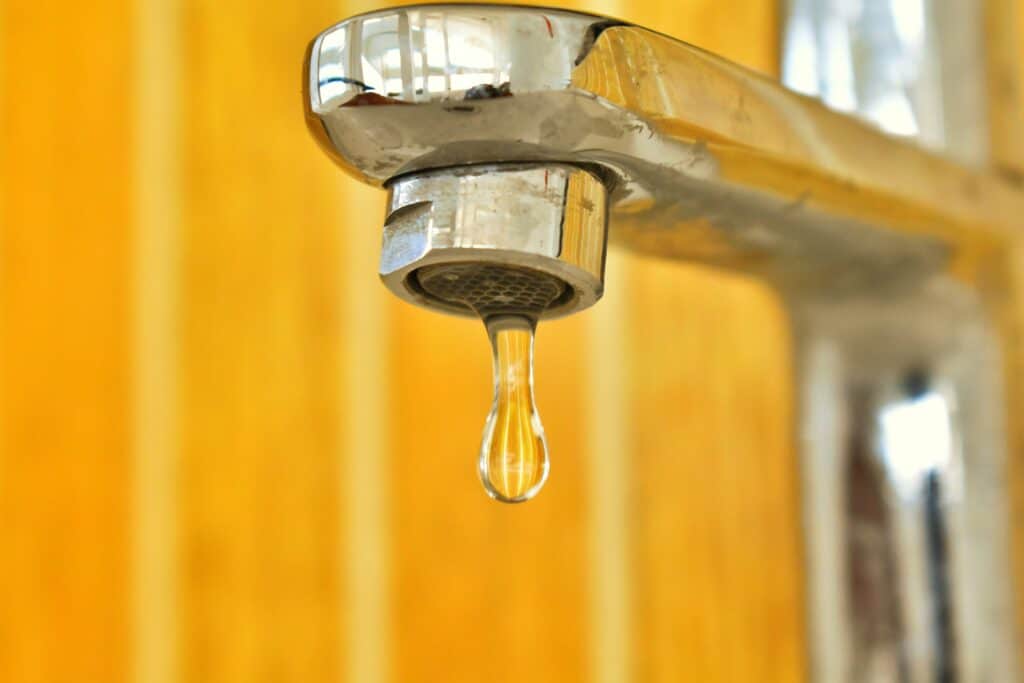
When can babies have tap water with formula?
It should be fine to give your baby tap water in their formula at any age. Just make sure to use the tips in this article to check the water’s quality and discuss with your pediatrician your child’s specific needs.
If your baby is premature or has health problems, your doctor may recommend ready-to-feed formula or special preparation.
Do I need to boil tap water?
The World Health Organization states that all water should be boiled before use, in general. In most American cities, this isn’t necessary due to the efficiency of modern treatment plants, but it could still be a good idea if you aren’t sure of your water quality.
Boil the water for no longer than a minute, then let it cool before mixing it with formula.
Should I filter tap water for baby formula?
Many people benefit from using a filter before drinking tap water from their kitchen sinks. This helps you clean your water a little bit more before enjoying it. These can also be a great tool if your area’s tap water contains contaminants.
As long as you are getting water from a municipal water supply, you can check the quality of your tap water by searching your zip code. Test the safety of your drinking water on the Environmental Working Group website.
If you find that there is a large number of contaminants in your tap water, it may be a good idea to purchase a home filtration system or use some of the bottled options you can purchase from the store when mixing baby formula.
Speak with Your Child’s Pediatrician
If you are ever unsure about what is okay and what is unsafe to feed your baby, make sure to consult with his or her pediatrician.
Your baby’s doctor will know your baby’s health and allergies in order to make an informed decision about what to feed your infant. They will guide you through the best tips to follow when choosing formula, water, and beginner foods for your little one.
Best of all, if you use a local doctor, they should be able to give you specific recommendations based on your town’s water supply.

